Dans les ruines d'une abbaye
-
Ships in 2 to 3 weeks
Details
Description
SKU: CA.925200
Composed by Gabriel Faure. Arranged by Denis Rouger. Separate edition to the CD. Secular choral music. Full Score. Op. 2, No. 1. Duration 2 minutes. Carus Verlag #CV 09.252/00. Published by Carus Verlag (CA.925200).ISBN M-007-24914-4. Key: A major. Language: French. Text: Hugo, Victor.
The exuberant amorousness of a newly-wed couple pulsates in every note of Gabriel Faure's Dans les ruines d'une abbaye (In the ruins of an abbey). In this piece, the reverent silence of prayer no longer prevails, but within the venerable walls "various shouts of joy" and "sparkling laughter" are now heard. The old graves have long been overgrown by stinging nettles, and a new dawn of spring and of love fills the air. Napoleonic post-revolutionary France, which drove the author of the poem, Victor Hugo, into exile, is also building a new world on the ruins of olden days. Although the setting by the composer, 40 years younger than the poet, uses the romanticized backdrop of the old abbey, with its 6/8-meter it reflects the uninhibited happiness of the two lovers, who do not look back. These art songs were originally composed not for chamber choir, but for solo voice and piano. Denis Rouger has carefully adapted them to suit the requirements and expressive possibilities offered by a larger ensemble, without losing the any of the qualities of the original in the process. Each part in the choir has a melodic line drawn from the harmonic and rhythmic framework. In the process, the variety and refinement of the choral language combines with an enormous flexibility in form and expression, as French melodies or German art song demand from a soloist and pianist. The songs have been recorded by the figure humaine chamber choir on the CD "Kennst du das Land ..." (Carus 83.495).
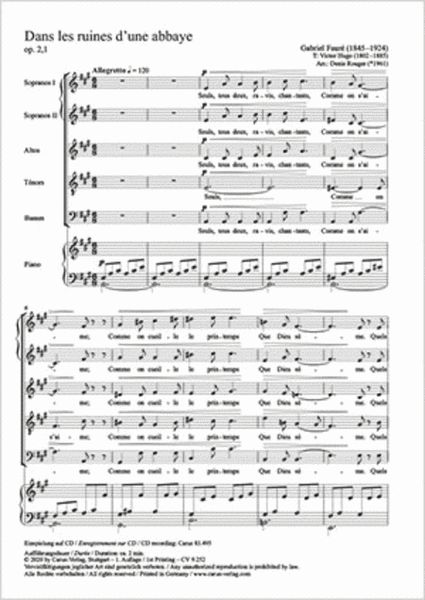
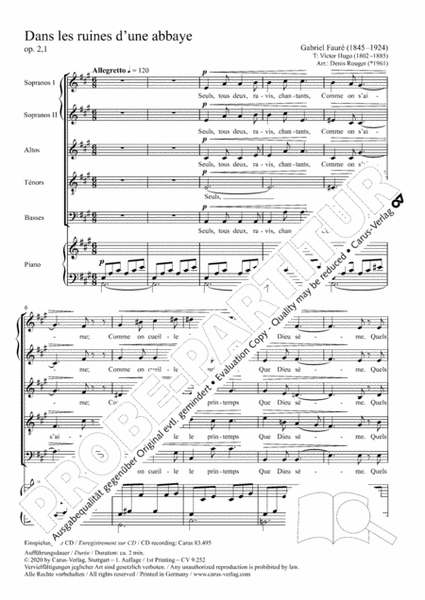
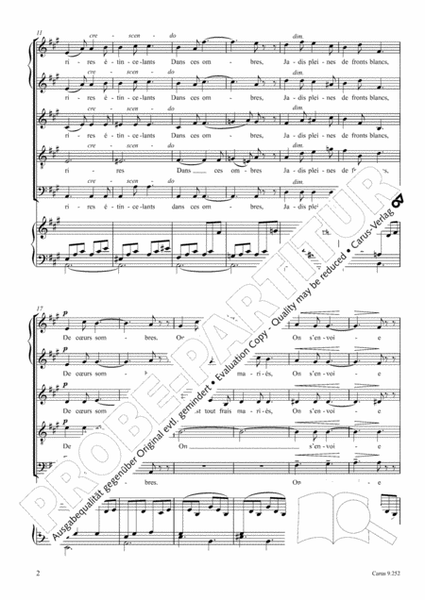
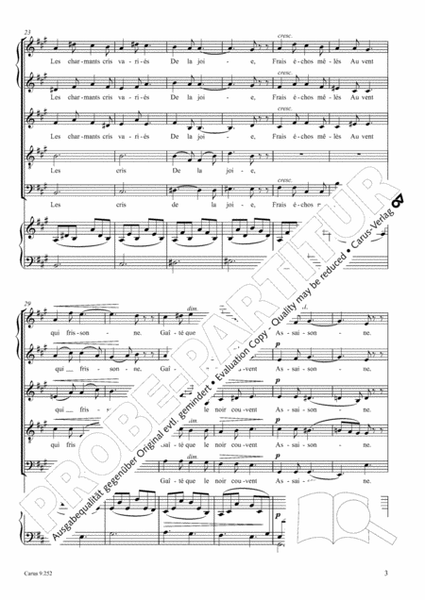
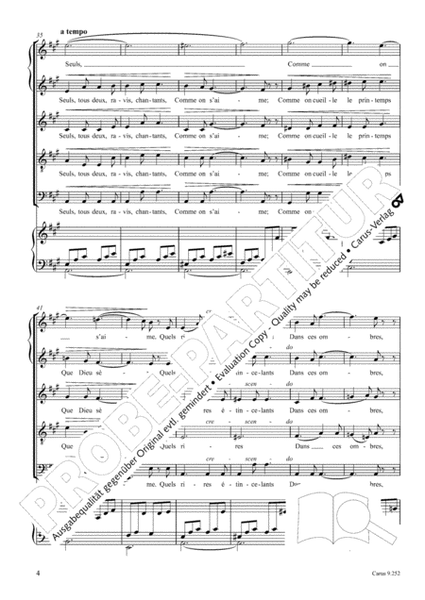
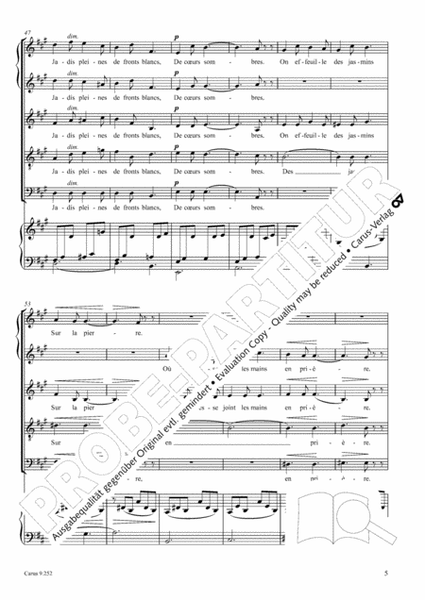
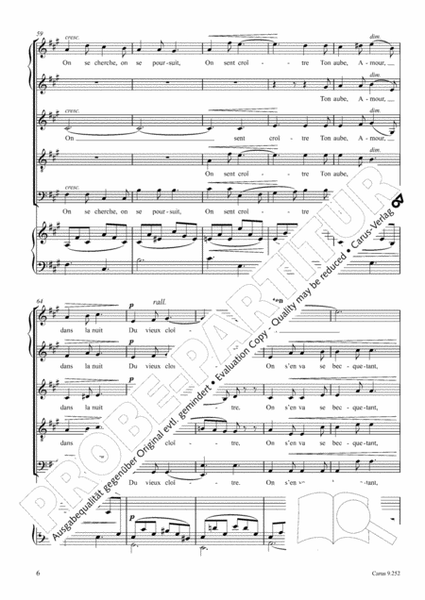
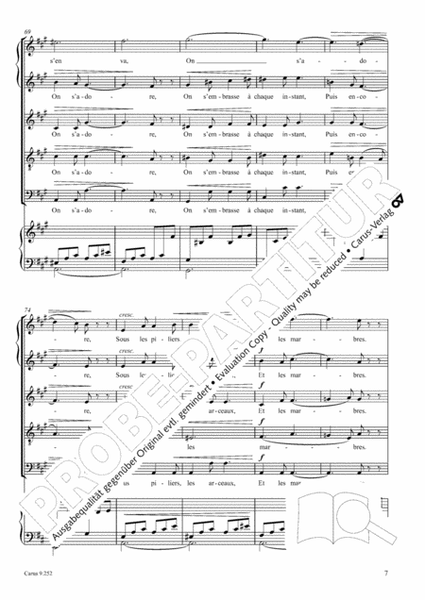
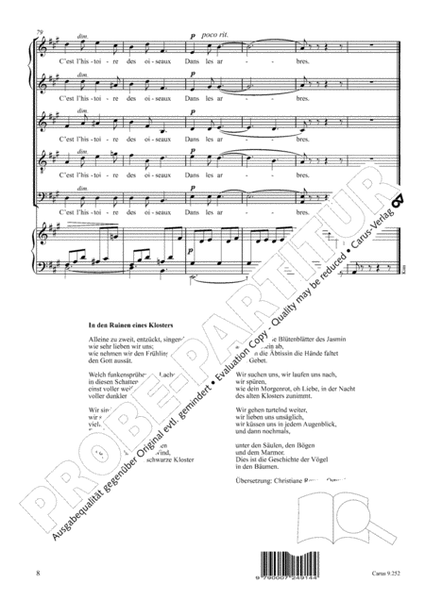
 Share
Share